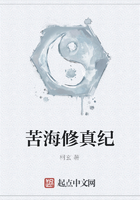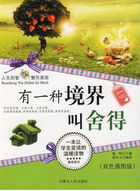SOCRATES: And zugon (yoke) has no meaning,--it ought to be duogon, which word expresses the binding of two together (duein agoge) for the purpose of drawing;--this has been changed into zugon, and there are many other examples of similar changes.
HERMOGENES: There are.
SOCRATES: Proceeding in the same train of thought I may remark that the word deon (obligation) has a meaning which is the opposite of all the other appellations of good; for deon is here a species of good, and is, nevertheless, the chain (desmos) or hinderer of motion, and therefore own brother of blaberon.
HERMOGENES: Yes, Socrates; that is quite plain.
SOCRATES: Not if you restore the ancient form, which is more likely to be the correct one, and read dion instead of deon; if you convert the epsilon into an iota after the old fashion, this word will then agree with other words meaning good; for dion, not deon, signifies the good, and is a term of praise; and the author of names has not contradicted himself, but in all these various appellations, deon (obligatory), ophelimon (advantageous), lusiteloun (profitable), kerdaleon (gainful), agathon (good), sumpheron (expedient), euporon (plenteous), the same conception is implied of the ordering or all-pervading principle which is praised, and the restraining and binding principle which is censured. And this is further illustrated by the word zemiodes (hurtful), which if the zeta is only changed into delta as in the ancient language, becomes demiodes; and this name, as you will perceive, is given to that which binds motion (dounti ion).
HERMOGENES: What do you say of edone (pleasure), lupe (pain), epithumia (desire), and the like, Socrates?
SOCRATES: I do not think, Hermogenes, that there is any great difficulty about them--edone is e (eta) onesis, the action which tends to advantage; and the original form may be supposed to have been eone, but this has been altered by the insertion of the delta. Lupe appears to be derived from the relaxation (luein) which the body feels when in sorrow; ania (trouble) is the hindrance of motion (alpha and ienai); algedon (distress), if I am not mistaken, is a foreign word, which is derived from aleinos (grievous); odune (grief) is called from the putting on (endusis) sorrow; in achthedon (vexation) 'the word too labours,' as any one may see; chara (joy) is the very expression of the fluency and diffusion of the soul (cheo); terpsis (delight) is so called from the pleasure creeping (erpon) through the soul, which may be likened to a breath (pnoe) and is properly erpnoun, but has been altered by time into terpnon; eupherosune (cheerfulness) and epithumia explain themselves; the former, which ought to be eupherosune and has been changed euphrosune, is named, as every one may see, from the soul moving (pheresthai) in harmony with nature; epithumia is really e epi ton thumon iousa dunamis, the power which enters into the soul; thumos (passion) is called from the rushing (thuseos) and boiling of the soul; imeros (desire) denotes the stream (rous) which most draws the soul dia ten esin tes roes--because flowing with desire (iemenos), and expresses a longing after things and violent attraction of the soul to them, and is termed imeros from possessing this power; pothos (longing) is expressive of the desire of that which is not present but absent, and in another place (pou); this is the reason why the name pothos is applied to things absent, as imeros is to things present; eros (love) is so called because flowing in (esron) from without; the stream is not inherent, but is an influence introduced through the eyes, and from flowing in was called esros (influx) in the old time when they used omicron for omega, and is called eros, now that omega is substituted for omicron. But why do you not give me another word?
HERMOGENES: What do you think of doxa (opinion), and that class of words?
SOCRATES: Doxa is either derived from dioxis (pursuit), and expresses the march of the soul in the pursuit of knowledge, or from the shooting of a bow (toxon); the latter is more likely, and is confirmed by oiesis (thinking), which is only oisis (moving), and implies the movement of the soul to the essential nature of each thing--just as boule (counsel) has to do with shooting (bole); and boulesthai (to wish) combines the notion of aiming and deliberating--all these words seem to follow doxa, and all involve the idea of shooting, just as aboulia, absence of counsel, on the other hand, is a mishap, or missing, or mistaking of the mark, or aim, or proposal, or object.
HERMOGENES: You are quickening your pace now, Socrates.
SOCRATES: Why yes, the end I now dedicate to God, not, however, until I have explained anagke (necessity), which ought to come next, and ekousion (the voluntary). Ekousion is certainly the yielding (eikon) and unresisting--the notion implied is yielding and not opposing, yielding, as I was just now saying, to that motion which is in accordance with our will; but the necessary and resistant being contrary to our will, implies error and ignorance; the idea is taken from walking through a ravine which is impassable, and rugged, and overgrown, and impedes motion--and this is the derivation of the word anagkaion (necessary) an agke ion, going through a ravine. But while my strength lasts let us persevere, and I hope that you will persevere with your questions.
HERMOGENES: Well, then, let me ask about the greatest and noblest, such as aletheia (truth) and pseudos (falsehood) and on (being), not forgetting to enquire why the word onoma (name), which is the theme of our discussion, has this name of onoma.
SOCRATES: You know the word maiesthai (to seek)?
HERMOGENES: Yes;--meaning the same as zetein (to enquire).

